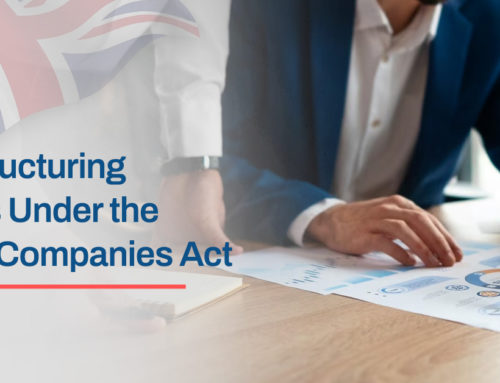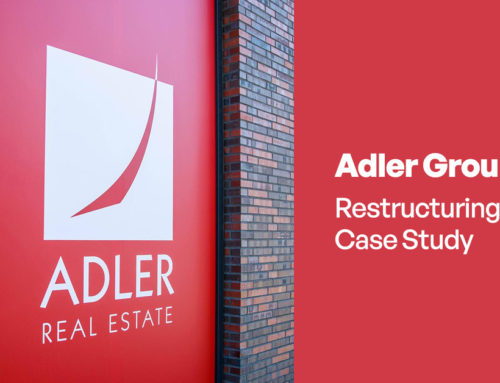In 2020, due to the COVID-19 pandemic, the level of personal and business debt has risen exponentially. The latest October 2020 debt statistics in the UK aren’t comfortable to read:
- Average total debt per UK household in August 2020 – £60,526.
- Total unsecured debt per UK adult in August 2020 – £3,946.
- Between June and August 2020, 230 people were declared insolvent or bankrupt a day in England and Wales.
- In Northern Ireland, there were an average of 4.8 insolvencies a day and in Scotland, 21.5 insolvencies a day.
- Between April and June 2020, a property was repossessed every day in the UK.
- Business lending is expected to increase by 14% or more in 2020.
- Over £34 billion has been provided for businesses via the Government ‘bounce back’ scheme.
In the current climate, personal and business debt is likely to rise. More and more people and companies will be entering into debt plans in the United Kingdom. There are different types of personal and business debt plans in the United Kingdom, depending on the circumstances and level of debt.
What is a debt plan?
Firstly, let’s explain what a debt plan is and how it can help. A debt management plan is a formal agreement between you and your creditors with regard to paying the debts. If your level of debt is such that you can afford to make small regular payments, or can pay in a short period of time, a debt management plan is a good option. You can either come to an agreement with creditors yourself, or use the services of a licensed debt management company.
Using a debt management company adds confidence for the creditors. You make one regular payment to the company and they will distribute to your creditors according to the agreed plan. However, they will charge a fee; this usually includes a set-up fee and a charge for the handling of every monthly payment.
Personal debt plans in the United Kingdom
There are a variety of personal debt plans available in the UK. Which option suits you is dependent on your circumstances and level of debt. If you haven’t managed to come to an agreement with your creditors, one of the following plans arranged via a debt management company should be considered.
Debt Management Plan (DMP) – this option allows you to repay your debts at a rate that is affordable to you. A DMP is ideal for debts such as store or credit cards, personal loans or overdrafts.
- The debt management company will work with you and your creditors to agree a payment plan that is affordable.
- A monthly payment is made to the company that is managing the DMP, who subsequently distributes the funds to your creditors.
Debt Relief Order (DRO) – if you are on a low income and have little in the way of assets or none at all, this is the best option. Working with a debt management company, entering into a DRO freezes your debts with creditors for 12 months. If there is no change in circumstances at the end of this period, the debts will be written off entirely.
Individual Voluntary Arrangement (IVA) – if your debts are at a significant level and the amount you can pay back is low, an IVA could be the best option.
An IVA:
- Lasts for a specific amount of time, i.e. 5 or 6 years.
- Enables you to pay back what you can afford, even at a low rate.
- Means that any outstanding amount at the end of the term is written off entirely.
Once an IVA has been agreed and signed by both parties, it is a legally binding agreement. Neither you nor your creditors are able to leave the agreement.
Bankruptcy – considering bankruptcy should be considered a last resort.
- It will write off all the debts you owe, as long as you can prove the debt.
- Any assets you have will be seized and the debt management company will use the realised value to pay off your creditors.
- Whilst it allows you to make a fresh start, you will find it almost impossible to get credit anywhere for a minimum period of three years.
Administration Order – similar to an IVA, an Administration Order is granted by a County Court. It is suitable if:
- Your level of debt is below £5,000.
- You are able to make regular payments towards your debts.
- You have a minimum of two debts, one of which is a Higher Court Judgement or CCJ against you.
Writing off debts – in exceptional circumstances, i.e. you have no income available, no savings and no assets, you can demonstrate this to your creditors and that it’s not likely to improve in the future, you may be able to write off your debts.
Full and final settlement offer – if you are not able to pay your debt in full but are able to make a substantial lump sum payment, your creditors may accept an offer that is in part-payment. If the creditor is in agreement, the remaining outstanding amount would be written off. Alternatively, your creditor may allow you to make monthly payments over an agreed period of time. When the period comes to an end, the balance is again written off.
Business debt plans in the United Kingdom
For any company that is struggling with debt, entering into liquidation must be considered a last resort. There are a variety of potential debt plans in the United Kingdom that could save your business. There are three general debt categories:
- Overdrafts or loans.
- Asset-based finance.
- Fixed-income debt securities.
Overdrafts and loans – these are the main source of debt relief for businesses. They are available through banks and building societies, government-backed schemes, other lending institutions as well as individual investors. The latter is known as peer-to-peer (P2P) lending.
Asset-based finance – an asset-rich company may be able to secure finance based on their assets. This will include:
- Asset financing, such as hire purchase or leasing.
- Invoice finance, such as invoice factoring, invoice discounting and asset-based lending (ABL).
- Supply chain finance.
Fixed-income debt securities – these are usually in the form of a bond, or mini-bonds, available from credit unions. This form of business finance is usually only considered by large corporate companies.
If you are looking for debt management advice or planning on liquidating your company, the first step is to seek professional advice. Our highly experienced professionals at Leading UK are on hand to help and advise on the process, visit us here or call on 01603 552028






